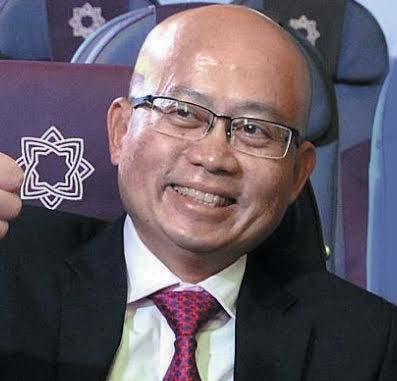EXPATS CALLING SHOTS
In an emerging trend, expatriates (expats) are increasingly occupying top management positions in Indian companies as the companies expand their global presence further.While hiring of expatriates across industries has been growing at a steady pace over the last two decades, this trend has particularly accelerated considerably in the last few years. Human resource (HR) experts estimate that at least 15 to 20 per cent of Indian companies have been hiring expats for executive-level positions, including for the roles of CEO and board members. Tata SIA Airlines CEO Phee Teik Yeoh, Reliance Digital CEO Brian Bade, Go Airlines CEO Giorgio De Roni, Maruti Suzuki India MD and CEO Kenichi Ayukawa and Vodafone India MD Marten Pieters are among some of the top-level expat chiefs in India. Experts note that about 70 per cent of expats are hired at senior CEO levels, while the rest are taken inat middle or junior management position.
Magnetic India
According to HR services firm Randstad India, 30,000 to 35,000 expats are working in India at present and this number is set to increase by around 10 to 15 per cent a year, going forward, as India returns to a path of economic growth. “With Indian companies also increasing their presence globally, we are witnessing signifi cant expat hires with the technical and functional knowledge to compete with global competitors,” notes Randstad India CEO Moorthy K Uppaluri.
Apart from the positive outlook of the economy, the ease in travelling, better connectivity and better lifestyle at much lower costs have greatly facilitated this trend, opines MrUppaluri, adding that the trend hasaccelerated in the last five years.
Executive search firm Mancer Consulting CEO Satya D Sinha opines that “The concept of expat hiring at toplevel management has always been prevalent across the globe. With increasing globalisation, the trend is even more visible in the last five to six years”.
He feels that there has been a major upsurge in hiring activities for expatriates in the last five to six months on account of a change in government and the rising Indian economy. Interestingly, Mr Sinha points out that a lot of the expats have begun their own start-ups in India.
Unison International MD Udit Mittal opines that the most common reason for hiring expats is a lack of skill availability in the domestic mar-ket. “Another common reason that firms use expats is for their superior communication skills, and because they have an understanding of new markets and how business is done in their home countries,” notes
Mr Mittal. Major players looking to hire expats are in the automobile, retail, ecommerce, aviation, engineering and manufacturing sectors. “With a lot of mergers and acquisitions happening and India being a fast-paced economy, a lot of Indian business houses are taking up joint ventures with international brands,” adds Mr Mittal.
“Expats come in, and unlike most of the Indian top management, they are hands on. They don’t mind getting their hands dirty,” Mr Mittal points out. “Vast and diverse experience, coupled with excellent communication skills and business knowhow from their country of origin, tends to impact a company’s revenue in a positive way. Many companies, which were not doing good enough, have made a comeback in style just by restructuring the organisation or bringing new top management,” he notes. MyHiringClub.com CEO Rajesh Kumar points out that most expat hiring is taking place at the top management level. “One major reason for hiring expats in top management positions is their skills and exposure to international market,” he adds.

According to talent management firm DDI’s Amogh Deshmukh, “While they (expats) may be new to the Indian way of working and culture, they are still quite adept at learning and accepting the new work culture and environment.” Mr Deshmukh further notes that over the years, there has been a mixed trend with multinational organisations having a few expatriates at the CEO level and a few deciding to have an Indian CEO from the time they entered India. “Another trend that we have seen is expatriates are mainly invited for their technical expertise in many organisations,” he adds.
Global village
According to experts, the number of experts will continue to grow as India has made it to the list of top-10
favourite expat destinations. Expats bring in a lot of perspective to the company. With their global exposure, they can align the Indian units with global units quite effectively. At the same time, they can market the abilities of India operations well, help companies get better work and create a win-win situation for all. The main factors facilitating a rise in hiring of expatriates can also be attributed to shrinking job opportunities in contracting economies in Europe and the United States where citizens of these countries have begun looking at India as an important destination to land up for a better job.
"With Indian companies increasing their presence globally, we are witnessing signifi cant expat hires with technical and functional knowledge to compete with global competitors."
MOORTHY K UPPALURI
CEO, Randstad India

India Calling
- About 35,000 expats working in India
- Their number set to increase by around 15% annually
- At least 20% Indian companies hiring expats for executive-level positions
- Around 70% expats hired at senior CEO levels
- Expats attracted by upbeat economy, better connectivity and lifestyle
- Lack of skill availability in domestic market fuelling the trend
- Shrinking job opportunities in developed economies luring expats to India
"The concept of expat hiring at toplevel management has always been prevalent across the globe. With increasing globalisation, the trend is even more visible in the last five to six years."
SATYA D SINHA
CEO, Mancer Consulting
Further, for Indian employers, expats have been in demand for their expertise in various fields, such as infrastructure and technology, as such skills have not been easily available in India as they are in developed countries. With businesses getting more complex and competitive, employers need experienced hands from outside.
"A common reason that firms use expats is for their superior communication skills, and because they have an understanding of new markets and how business is done in their home countries."
UDIT MITTAL
MD, Unison International
A very good example is the metro rail project in the infrastructure segment and 4G projects in the telecom sector. A lot of projects are time-sensitive, which attracts someone who can complete in less time.
Expats having been exposed to similar projects abroad can manage delivery within defi ned timelines, point out experts. The world has turned into a big global village over the past two decades.
Just as foreign chiefs are steering some top Indian companies, many blue-chip global giants are being driven by head honchos of Indian origin.
Businesses know no boundaries, and over the past two decades, the pace of globalisation has facilitated the shift of talent across borders.
BUDDING MANAGERS
JANUARY 2015 ISSUE
Rate This Article:
Posted On: Thursday, 22 January, 2015 - 14:46
